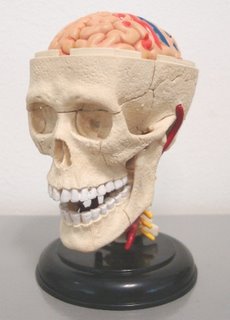 It is with great reluctance that I reveal my new model of organizing and creating new knowledge, called FAMILIAR (Fractal-Analog Method of Integrating Limitless Information into Aligned Resources), partly because I had planned to refine this idea further so that I can publish it properly in a book, and partly because I'm not best friends with humanity right now and I don't want my ideas to fall into the hands of the people I hate.
It is with great reluctance that I reveal my new model of organizing and creating new knowledge, called FAMILIAR (Fractal-Analog Method of Integrating Limitless Information into Aligned Resources), partly because I had planned to refine this idea further so that I can publish it properly in a book, and partly because I'm not best friends with humanity right now and I don't want my ideas to fall into the hands of the people I hate.As it currently stands, the model has some holes and is fairly useless, but when decked with sufficient relevant data it has some potentially powerful implications.
This is an exclusive privilege for Fresh Brainz readers only - please do not pass this knowledge to scumbag bankers, dickhead politicians and fuckfaced lawyers because they can turn this idea into a weapon for controlling everyone.
Many thanks.
**********
"The most incomprehensible thing about the world is that it is at all comprehensible." - Albert Einstein
Indeed, considering its complexity and vastness, the most mysterious thing about the Universe is the fact we can even begin to understand it.
Strangely enough, the reality is that the vast majority of living systems are routinely capable of coping with the staggering complexity of the Universe. People and microbes alike experience perfectly happy lives without needing to know the existence of quarks or quasars.
The key to this is the ability to prioritize and react only to a few immediately relevant aspects of the total complexity - to differentiate between knowledge and data.
Scientifically, "knowledge" comprises a collection of data (or fact) and an explanatory structure (or theory) that organizes the data into a meaningful whole. While data constitutes an important aspect of knowledge, by itself it is not knowledge. In fact, data that cannot yet be aligned into any coherent explanatory structure will usually be regarded as noise.
It doesn't take a genius to perceive the difference between knowledge and noise; the tiniest single-celled organism instinctively ignores most of the stimuli it receives from its environment and responds to only some of them that pose an immediate threat or benefit.
Likewise, scientific knowledge doesn't directly mimick the full complexity of a given system, but brutally simplifies it into some basic principles that are comprehensible and useful to the human mind, thus allowing testable predictions and technologies to be produced.
This simplification process is often accused by opponents of rational inquiry to be fatally flawed because it is unavoidably tentative and incomplete.
How can anyone claim to understand the whole Universe if one has only examined an infinitesimal fraction of it?
Here at Fresh Brainz, we think that such a feat is possible once you appreciate the crucial distinction between knowledge and data, and understand the core structure of systems that reiterate themselves over and over again, from the subatomic world, through the intricacies of cells, organisms and societies to the interactions of galactic clusters.
I should emphasize again that as limited beings we can never hope to collect every last bit of data about the Universe, but we can achieve an increasingly complete knowledge about the Universe.
FAMILIAR is a simple, scaleable model that seeks to organize and unite all aspects of human knowledge so that we can learn about the core structure of systems and in doing so, gradually approach a complete understanding of our Universe.
Stay tuned for the next post about runaway complexity.
Would you like to know more?
- Prologue to FAMILIAR: Redundancy Redundancy






2 Comments:
"What is that which, being known, makes all things known?" - Mundaka Upanishad I.1.3
The Extended Bertalanffy Box :)
Post a Comment